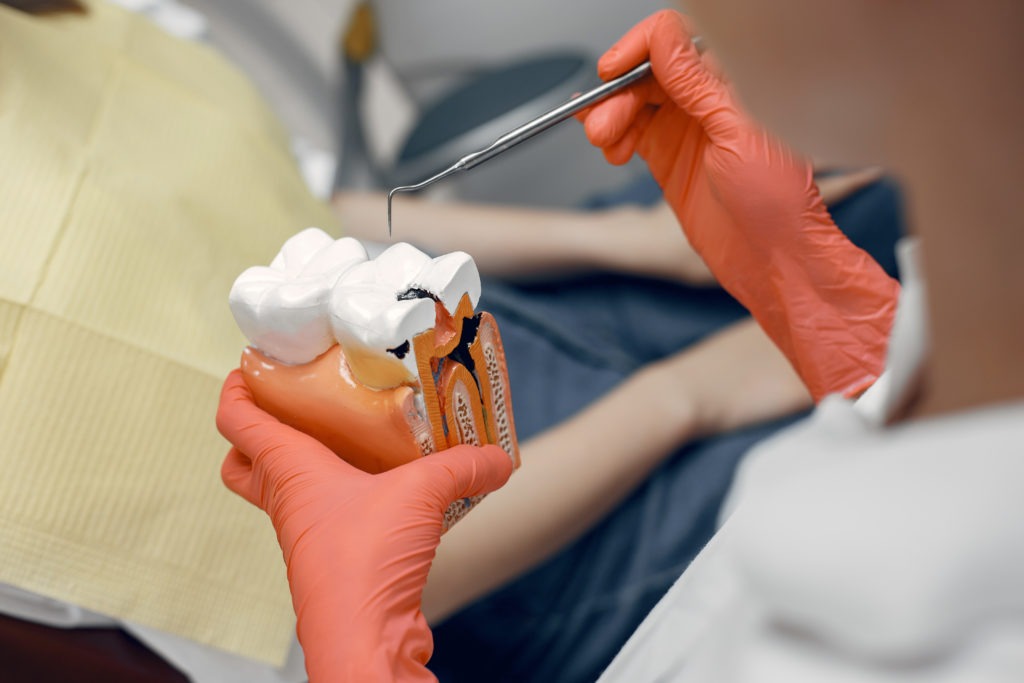A root canal can be a daunting experience for many, but it’s often the best option to save a damaged or infected tooth. After undergoing this procedure, one of the most common questions is, “How long after a root canal can I eat?” In this blog, we’ll dive into the answer and provide some key insights on how to properly care for your tooth post-treatment. Additionally, we’ll discuss whether a root canal is worth it, answering a frequently asked question many patients have when weighing their options.
Understanding the Root Canal Procedure
Before jumping into the eating guidelines, it’s important to understand what happens during a root canal. In this procedure, the dentist or endodontist removes infected or damaged tissue from the tooth’s pulp, thoroughly cleans the inside of the tooth, and seals it to prevent further infection. It’s a treatment designed to relieve pain and save your natural tooth, which is always preferable over extraction.
How Long After a Root Canal Can I Eat?
The answer largely depends on whether your dentist used anesthesia during the root canal. Since most root canals involve numbing the area with local anesthesia, it’s essential to wait until the numbness wears off before eating. This typically takes about 2-4 hours, though it can vary depending on the individual.
Here are some general guidelines:
- Wait for the Numbness to Subside: Eating while your mouth is still numb can lead to accidental bites on your tongue, cheek, or lips, which could cause injury. Therefore, it’s crucial to wait until you can fully feel your mouth again.
- Soft Foods Are Key: Once you can feel your mouth, stick to soft foods for the first 24-48 hours. Foods like mashed potatoes, yogurt, smoothies, scrambled eggs, and oatmeal are excellent choices. These foods are gentle on the treated area and reduce the risk of damaging your tooth.
- Avoid Hot and Hard Foods: Your tooth will likely be sensitive for a few days after the procedure, especially if you have a temporary filling or crown. Avoid hot beverages or foods that can increase sensitivity. Similarly, steer clear of hard or crunchy foods like nuts, chips, or raw vegetables that could damage the temporary crown or irritate the tooth.
- Chew on the Opposite Side: If possible, chew on the side of your mouth opposite to the treated tooth. This reduces the pressure on the newly treated area and allows it to heal more quickly.
- Resume Normal Eating After Full Recovery: Typically, after a root canal, patients can resume normal eating within a few days. Once your permanent crown or restoration is placed, you can go back to eating normally, but still exercise caution with very hard or sticky foods.
Post-Root Canal Care Tips
To ensure a smooth recovery after your root canal, here are a few additional care tips:
– Maintain Oral Hygiene: Keeping the area clean is crucial to prevent infection. Brush and floss gently around the treated tooth to avoid irritation.
– Take Prescribed Medications: Your dentist may recommend over-the-counter pain relievers or prescribe medication to help with any discomfort. Follow the prescribed dosage to stay comfortable.
– Attend Follow-Up Appointments: After a root canal, a follow-up visit is usually scheduled to place a permanent crown or restoration. Don’t skip this appointment, as it’s vital for protecting the tooth and preventing future complications.
Is a Root Canal Worth It?
Now, let’s address the burning question: Is a root canal worth it? The short answer is, yes! Here’s why:
- Saves Your Natural Tooth: One of the biggest benefits of a root canal is that it saves your natural tooth. Keeping your own teeth is always preferable because they function better than artificial replacements like implants or dentures.
- Prevents Further Damage: A root canal eliminates the infection inside your tooth, preventing it from spreading to other parts of your mouth or even your bloodstream. This helps avoid more serious health complications.
- Restores Functionality: Once the root canal is completed and the tooth is restored with a crown, you’ll regain full functionality of the tooth. This allows you to chew, bite, and speak normally without discomfort.
- Cost-Effective: While the initial cost of a root canal may seem high, it is often less expensive than tooth extraction followed by an implant or bridge. Keeping your natural tooth is not only cost-effective but also helps maintain the alignment of surrounding teeth.
- Relieves Pain: Root canals are performed to eliminate severe pain caused by infected or damaged teeth. The procedure itself is relatively painless, thanks to modern anesthesia, and most patients feel significant relief afterward.
If you’re wondering how long after a root canal you can eat, remember that patience is key. Waiting until the anesthesia wears off and sticking to soft, gentle foods will help protect your tooth while it heals. Within a few days, you’ll likely be back to enjoying your normal diet.
As for whether a root canal is worth it — absolutely. Not only does it save your natural tooth, but it also prevents further health issues and helps restore your mouth’s normal function. With proper care, the treated tooth can last a lifetime, making it one of the best investments you can make for your dental health.
If you’re experiencing tooth pain or facing the decision of whether to undergo a root canal, consult with your dentist about the benefits. The sooner you address the issue, the quicker you can get back to enjoying life without discomfort!

